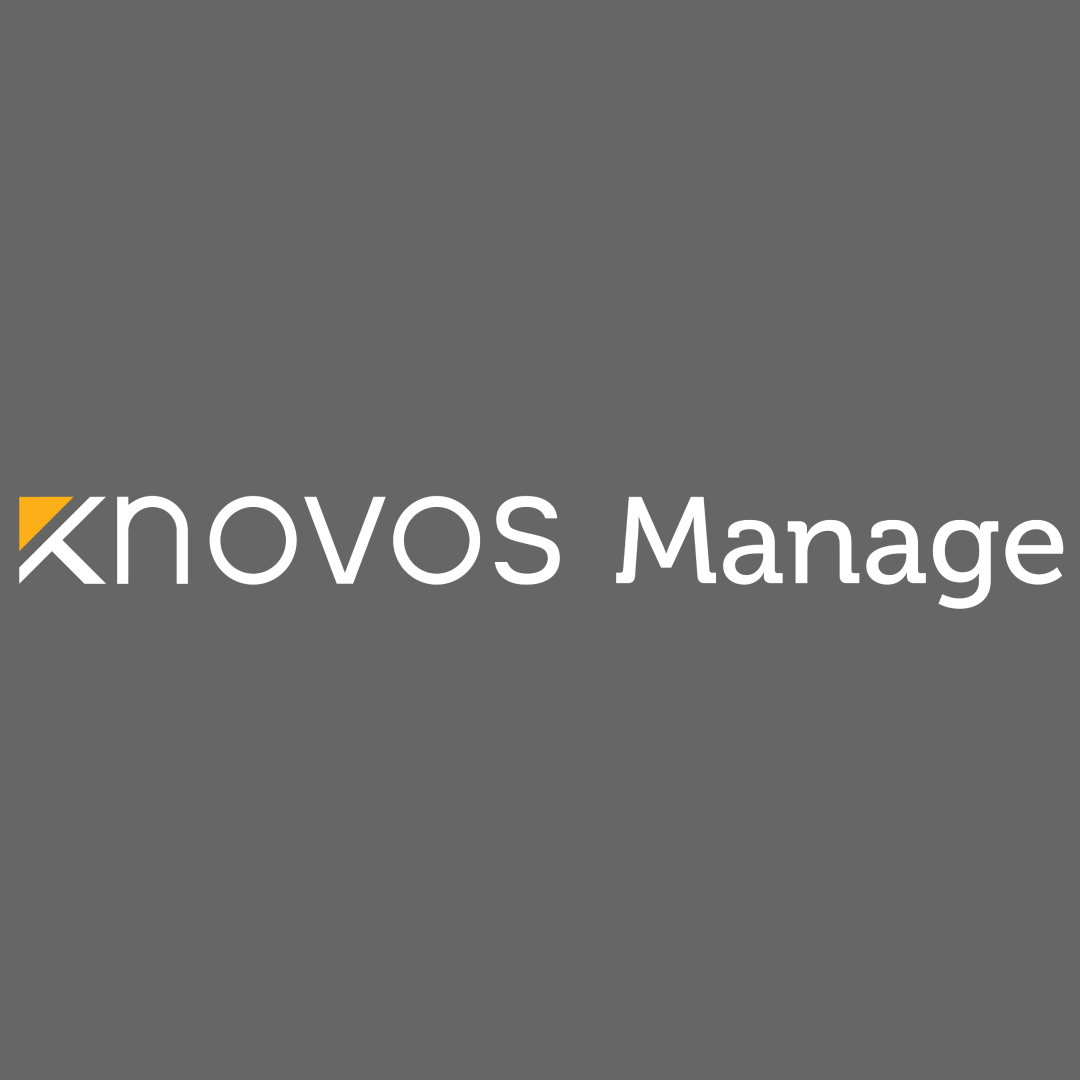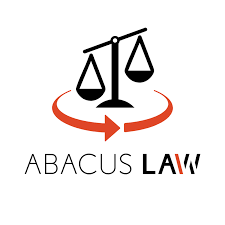Yes, most legal billing software can now be used from numerous devices and platforms, making it convenient for lawyers and law firms. Your billing software can be accessed from any device with an internet connection, including a mobile phone, tablet, or computer. This provides for smooth and efficient invoicing, tracking, and control of legal billing activities at all times and from any location.
List of 20 Best Legal Billing Software
TimeSolv Legal Billing is a all-in-one solution for lawyers. With features like split billing, time tracking, integrated payments, and document management, this comprehensive software streamlines your billing process. Its advanced conflict check mana...Read More TimeSolv Legal Billing
Firm Central is a business management solution designed exclusively for legal professionals. With its state-of-the-art automated workflow system and advanced tools, Firm Central streamlines project and client management, resulting in higher profits a...Read More Firm Central
eIMMIGRATION is a highly acclaimed case and practice management software that has been widely adopted by immigration professionals from firms of all sizes. It offers a comprehensive range of advanced features and a user-friendly interface, making it...Read More eIMMIGRATION
Legasis Roznama - a software utilizing Artificial Intelligence to facilitate simplified management, collaboration, and evaluation of legal disputes. With its state-of-the-art capabilities, Roznama empowers seamless tracking and resolution of legal is...Read More Legasis Litigation Management - ROZNAMA
CosmoLex, a top-notch Accounting Software designed to streamline your financial management processes. This powerful tool offers features such as expert statements, bill and expense organization, inventory management, and real-time access, saving busi...Read More CosmoLex
Headnote, an advanced billing and payment software designed to streamline the legal process. Our secure and compliant platform offers automated reminders and seamless integration with existing systems, allowing lawyers to focus on their practice whil...Read More Headnote
Attention all LawTrust users! We are currently in the process of implementing a new platform. For any support or inquiries, please visit our website at www.lawtrustsoftware.com or click the Contact link. Your cooperation during this transition is hig...Read More LawTrust
Verdict is a legal case management software designed to streamline processes for legal professionals. It offers advanced features for effortless document management, client communication, and case monitoring, resulting in improved productivity and to...Read More Verdict
CARET Legal, the essential solution for legal professionals to optimize their workflow and prioritize client satisfaction and time management. Stay ahead of the competition with our innovative software, tailored to boost your practice and maximize bi...Read More CARET Legal
LEAP Legal is a cloud-based practice management software tailored to meet the needs of law firms. Our comprehensive platform offers a range of essential features, including matter organization, legal form automation, email management, time tracking,...Read More LEAP Legal
Chaos Legal Billing solution for streamlining all your legal billing tasks. With its comprehensive tools, including Invoicing, Timer, Address Book, and Shared Data, managing your billing process has never been easier. Our integrated Email feature ena...Read More Chaos Legal Billing
Matter365 is a practice management solution powered by Microsoft Office365. Exclusively designed for law firms, Matter365 provides a comprehensive toolkit to oversee all aspects of your legal practice. From efficient time tracking and invoicing to st...Read More Matter365
Knovos Manage, a top-of-the-line project management and business intelligence solution. Utilize its advanced task automation, adaptable resource allocation, and extensive communication features to handle projects of any scale and intricacy. Benefit f...Read More Knovos Manage
SpiderG solution for streamlining your business invoicing process. With SpiderG, sending recurring invoices with a payment link is effortless, helping you collect payments faster. This user-friendly tool is perfect for every business, offering the co...Read More SpiderG
Legal Suite solution for all your legal requirements. This comprehensive software streamlines legal procedures, enhances contract handling, and provides insightful reporting. It is trusted and utilized by leading experts, empowering legal teams to ef...Read More Legal Suite
AbacusLaw the cloud-based legal case management software with a proven track record of 30 years in the industry. Our advanced features and user-friendly interface streamline workflows and boost business productivity. With mobile accessibility, you ca...Read More AbacusLaw
Smokeball, the ideal law management software for small firms. Designed with simplicity in mind, this platform streamlines all aspects of your legal practice, customized to your local jurisdiction. Its user-friendly interface enhances efficiency and e...Read More Smokeball
MazeWorks is a digital signing solution for individuals and businesses. Whether used alone or integrated with Tally.ERP9, MazeWorks efficiently signs multiple PDFs from different folders, saving you time and hassle. Perfect for GST invoices and HR co...Read More MazeWorks
PEARL PDF Signer solution for digitally signing essential documents such as legal contracts, invoices, tenders, and vouchers using your existing digital signature. This user-friendly software streamlines your document signing process, saving you time...Read More PEARL PDF SIGNER
Bill4Time Billing, the reliable and effective time billing software for businesses. Say goodbye to chaos with seamless time and expense tracking, efficient project and client management, and effortless invoice creation and delivery. Boost your produc...Read More Bill4Time Billing
Learn More About Legal Billing Software
- What Is Legal Billing Software?
- What Are The Recent Trends In Legal Billing Software?
- Benefits Of Using Legal Billing Software
- Important Factors To Consider While Purchasing Legal Billing Software?
- What Are The Key Features To Look For In Legal Billing Software?
- Why Do Businesses Need Legal Billing Software?
- How Much Time Is Required To Implement Legal Billing Software?
- What Is The Level Of Customization Available In Legal Billing Software?
- Which Industries Can Benefit The Most From Legal Billing Software?
- Conclusion
What Is Legal Billing Software?
Legal billing software is a specialist application that helps law firms and legal practitioners manage their billing and invoicing operations. It is an essential component of legal practice management software, offering a complete solution for time tracking, invoice generation, and client account administration. Legal billing software allows law firms to automate and streamline billing procedures, saving time and effort while ensuring accuracy. Time tracking is an essential aspect of legal billing software, allowing legal professionals to precisely document their billable hours.
This is especially essential for lawyers who bill clients on an hourly basis since it helps them to track the time they spend on various cases or assignments. The software also provides for adjustable billing rates based on the type of work and the personnel engaged, ensuring that clients are billed accurately and fairly. In addition to time monitoring, legal billing software supports invoice generation, expenditure tracking, and client administration.
Invoice generation allows legal firms to prepare and distribute professional-looking invoices to customers that include thorough breakdowns of services provided and associated costs. Expense monitoring enables for the recording and reimbursement of expenses incurred on behalf of clients, whereas client management tools assist law firms in keeping track of their clients' information, such as contact information, billing history, and unpaid amounts. Furthermore, legal billing software integrates with other tools, such as accounting software, to simplify the accounting process and maintain financial record accuracy.
This interface also enables quicker reconciliation of invoices and payments, resulting in faster and more efficient billing cycles. Investing in legal billing software can provide several benefits for law firms and legal professionals. It not only simplifies billing operations but also ensures transparency and accountability in billing methods. Legal billing software includes comprehensive reporting and analytics functions that provide insights into company performance, enabling for better decision-making.
What Are The Recent Trends In Legal Billing Software?
In recent years, the legal billing software sector has seen significant developments and advancements. These improvements have had a substantial impact on how law firms and legal professionals execute billing operations, resulting in enhanced efficiency, accuracy, and transparency. One of the most visible developments in legal billing software is the shift to cloud-based systems.
This allows for quick access to billing data from anywhere, at any time, making it ideal for remote workers and enterprises with several locations. Cloud-based solutions also offer automated upgrades, backups, and enhanced data protection. Another trend is the introduction of artificial intelligence and machine learning capabilities into billing software.This technology automates tasks such as time monitoring, invoicing, and expense management, allowing legal professionals to focus on their work.
Furthermore, many legal billing software now incorporates mobile apps that allow lawyers to track time and manage bills on the move, making it easier to keep up with billing while juggling a hectic schedule. This tool is especially valuable for firms with regular lawyer travel or a significant number of remote employees. Furthermore, there has been a focus on improving the user experience with legal billing software.
With more user-friendly interfaces, simple navigation, and customizable options, professionals can quickly adapt to the application and optimize their billing processes. Finally, there is a rise in demand for integrated billing and accounting software. Many legal billing solutions now integrate accounting features including accounts payable and receivable management, financial report generating, and budgeting. This allows for improved financial management and increased transparency for clients.
Benefits Of Using Legal Billing Software
Legal billing software is a useful tool for law firms and legal practitioners that want to optimize their billing operations and improve productivity. As technology advances in the legal sector, an increasing number of firms are turning to software solutions to help manage their billing and invoicing processes. So what are the advantages of using legal billing software?
1. Simplifies Billing Processes: One of the primary benefits of adopting legal billing software is that it streamlines the billing process. Everything, from creating invoices to tracking time and expenses, can be managed in one system. This eliminates the need for manual data entry and lowers the possibility of errors, eventually saving time and enhancing accuracy.
2. Improves Billing Accuracy: Legal billing software uses automated billing capabilities to ensure that your bills are correct and consistent. This not only reduces the risk of human error, but also helps to avoid client disagreements. The program may also provide thorough reports with insights into billable hours and expenses, making it easier to track and analyze your company's finances.
3. Saves Time And Boosts Efficiency: Legal billing software can save your business many hours of administrative work, allowing you to devote more time to your customers and their cases. The software can generate bills and invoices with a few simple clicks, saving you time and effort. It also enables for speedier invoice delivery, which can boost your firm's cash flow.
4. Enables Secure Data Storage: Most legal billing software includes cloud storage, which ensures that all of your client and billing information is securely saved. This removes the possibility of losing vital documents or data as a result of hardware failures or cyber attacks. It also provides quick access to your data from wherever, making remote work and collaboration more convenient.
5. Customizable To Your Specific Needs: Each legal practice has its own billing criteria and processes. Legal billing software enables you to modify and tailor invoicing and billing capabilities to your individual requirements. This guarantees that you have a solution that works for your business rather than trying to fit into a one-size-fits-all strategy.
Important Factors To Consider While Purchasing Legal Billing Software?
When it comes to choosing legal billing software, there are a few key elements to consider before making a purchase.
Here are the essential items to consider before making your purchase:
1. Features: The first consideration is the software's features. Make sure it has crucial features like time tracking, invoicing, and expenditure management. Additional tools that can improve the efficiency of your billing process include trust accounting, customized templates, and document management.
2. Usability: A user-friendly interface is essential in legal billing software. Look for a platform that is simple to use and comprehend; this will save you time and frustration in the long run. Consider downloading a free trial or demo of the software to get a sense of its usability.
3. Integration: Your legal billing software should work effortlessly with any other software you use, such as accounting or case management software. This will enable a smooth data transfer and prevent manual data entering errors.
4. Money: Of course, money is an important consideration when purchasing any product. Look for a price strategy that is within your budget, and be wary of any hidden costs or add-ons. Choose software that strikes a fair balance between functionality and pricing.
5. Cloud-Based Vs. On-Premise: Another essential factor to examine is whether the program is hosted in the cloud or locally. Cloud-based software is accessible from anywhere with an internet connection, but on-premise software requires installation on a specific computer or server. Choose the option that best fits your demands and budget.
6. Security: Because your legal billing software will include sensitive client information, it is critical that it be secure. To protect your data from cyber threats, look for software that includes encryption, data backups, and secure login methods.
7. Customer Support: No matter how user-friendly a product is, there may come a time when you require assistance. Look for a software vendor that provides consistent customer support, whether by live chat, email, or phone. When choosing legal billing software, consider these considerations to make an informed decision. When selecting the best software for your law company, consider your individual demands and budget.
What Are The Key Features To Look For In Legal Billing Software?
When it comes to legal billing software, it is critical to select the one that best matches the demands of your law practice. A decent legal billing software can simplify the billing process and help you accurately manage time, expenses, and bills. So, what are the main things to look for in legal billing software?
Let's delve in:
1. Time Tracking: One of the most important functions of legal billing software is time tracking. This tool enables lawyers and paralegals to accurately record their billable hours. It can also help you measure your team's productivity and find areas for growth.
2. Expense Management: Legal billing software should include an expense management tool that allows you to track and categorize all expenses associated with a case. This function might help you keep track of your firm's expenses and charge your clients correctly.
3. Invoicing: Invoicing is an important part of legal billing, and effective software should make it simple for you to prepare and submit invoices to your clients. Look for software that allows you to personalize your bills, add time entries and expenses, configure different billing rates, and send invoices electronically.
4. Trust Accounting: Legal billing software with trust accounting capabilities is critical for managing client trust assets. It can assist you in maintaining accurate records of trust account balances, tracking trust funds, and creating reports.
5. Reporting: Reporting is an important function that helps you to monitor the financial health of your law practice. Look for software with customizable reporting tools that can provide information about your company's sales, expenses, and profitability.
6. Integration: By integrating with other applications, such as accounting or practice management, you can streamline your billing process. It can save you time and lessen the possibility of errors in data entering.
7. Security And Compliance: To protect sensitive client and financial data, your legal billing software should meet industry security requirements. Look for software that provides encrypted data storage, secure logins, and data backup capabilities.
Why Do Businesses Need Legal Billing Software?
Businesses use legal billing software for a variety of reasons. For starters, it allows them to streamline their billing process, saving time and resources. A consolidated platform allows firms to effortlessly track billable hours, generate correct bills, and efficiently manage client payments. This leads to speedier payment processing, which results in increased cash flow for the company.
Second, legal billing software gives firms a more organized and professional way to manage their clients' legal bills. Businesses can design specific billing rates and budgets for each client, assuring billing transparency and accuracy. This not only increases consumer trust, but also minimizes the likelihood of billing conflicts. Another important feature of legal billing software is compliance with legal norms and standards.
This program is intended to ensure that all billing processes are consistent with industry legislation and ethical guidelines. It also keeps detailed billing records, making audits and tax filings easier for corporations. Furthermore, legal billing software provides real-time monitoring and analytics, enabling organizations to monitor important performance factors including billed hours, revenue, and collections.
This data can help firms make more informed decisions and discover areas for improvement in order to maximize profitability. Furthermore, legal billing software integrates with other critical tools, such as accounting software and client relationship management (CRM) systems, resulting in a smooth flow of data and increased productivity.
How Much Time Is Required To Implement Legal Billing Software?
The time required to implement legal billing software varies depending on the specific software and your law firm's needs. However, completely implementing and integrating legal billing software into your firm's operations often takes between a few weeks and a few months. The first phase in the deployment process is often data migration, which entails transferring all of your company's current billing data to the new software.
This may take some time, depending on the size and complexity of your data. The setup and customization phase follows, during which you will adjust the program to meet the specific demands of your company. This includes establishing billing rates, modifying invoice templates, and developing processing processes. This process may take many weeks to complete, depending on your company's specific needs and the complexity of the software.
After the setup is completed, training your employees on how to utilize the program efficiently is critical for a successful implementation. This usually takes a few days to a few weeks, depending on the size of your staff and their experience with billing software. The next stage is to test the software to confirm that it functions properly and meets your company's requirements. This process can take several weeks and may include detecting and resolving any difficulties that develop.
Overall, the adoption of legal billing software necessitates careful preparation and might take anything from a few weeks to many months to accomplish. It is critical to have a dedicated staff overseeing the implementation process and ensuring a smooth transition to the new software. However, if completely integrated, the software has the potential to save your company time and improve productivity in the long run.
What Is The Level Of Customization Available In Legal Billing Software?
One of the most important considerations when selecting legal billing software is the level of customization available. This refers to the software's capacity to meet the special requirements and preferences of a law firm or legal professional. Some legal billing software may include limited customisation, allowing users to enter their own logo, company information, and billing rates.
Others may offer a higher level of customization, allowing users to create their own templates, categorize spending, and even set up automated reminders for unpaid payments. The level of customization offered varies depending on the type of legal billing software. Web-based or cloud software may have fewer customization choices than on-premise software, which can be fully adapted to the needs of the user.
Buyers should carefully analyze their individual requirements and verify that the legal billing software they purchase provides the level of flexibility they require. This can save time and effort in the long run while ensuring a smooth billing procedure for your law company or practice.
Which Industries Can Benefit The Most From Legal Billing Software?
Legal Billing Software is an effective tool for streamlining and simplifying the billing process for lawyers, law firms, and legal departments. However, its advantages are not restricted to the legal profession. In fact, several other sectors would benefit immensely from incorporating this software into their processes.
Here are the top sectors that can take full advantage of Legal Billing Software:
1. Accounting & Finance: The accounting and finance business is responsible for managing vast volumes of financial data and billing clients for its services. Legal billing software can substantially aid this industry by providing a simple interface for tracking billable hours, expenses, and creating correct bills. The software can also be integrated with accounting systems, making financial records easier to maintain and increasing overall efficiency.
2. Consulting And Advisory Firms: To be profitable, consulting and advice organizations rely significantly on accurate and timely billing. Legal billing software can automate the billing process, eliminating the possibility of human error and guaranteeing that clients are compensated for all services provided. These businesses can increase productivity and profitability by using features such as time tracking and task management.
3. Real Estate: Real estate agents, brokers, and property managers frequently handle a large volume of legal documents and transactions. Legal Billing Software can assist them in keeping track of all legal fees involved with each transaction, ensuring that they are appropriately and timely reimbursed. Furthermore, the software's reporting features can provide significant insights into their finances, allowing them to make better business decisions.
4. Healthcare: In the healthcare business, legal billing is an important component of medical billing. Legal Billing Software allows healthcare professionals to log time spent on legal matters, precisely calculate charges, and generate itemized bills for their clients. The software's invoicing functions can also aid in streamlining the payment process and increasing patient satisfaction.
5. Technology & IT Services: Companies that provide technology and IT services may have complex invoicing structures that include multiple charges for different services and projects. Legal billing software can make this process easier by automating invoicing and tracking billable hours. Furthermore, the software's interaction with project management solutions allows for a more realistic picture of the time and resources spent on each customer.
Conclusion
In today's legal landscape, where time and accuracy are critical to success, investing in dependable and effective legal billing software is a sound investment. Law companies can use the correct software to improve their billing processes, decrease errors, and save time and money. After thoroughly examining and analyzing numerous legal billing software on the market, we found that the most important criteria to consider when selecting a legal billing software are pricing, functionality, ease of use, and customer service.
Pricing is an important element to consider because it directly affects your company's budget. Make careful to select software with straightforward pricing, no hidden fees, or additional expenses. Next, analyze the software's features and match them to your company's specific requirements. Look for tools like time tracking, invoicing, cost tracking, trust accounting, and reporting. Furthermore, the software's ease of use is crucial because it influences adoption rates inside your organization. Choose software with a simple UI and an easy learning curve for your team.
Finally, customer support is critical in ensuring that you receive prompt assistance with any technological concerns. Consider a software company that provides reliable customer service via multiple channels. Finally, investing in legal billing software can provide various benefits to your firm, including enhanced efficiency and accuracy, cost savings, and higher customer satisfaction. By taking into account the elements listed above, you may select the finest software for your company's specific requirements. With the correct legal billing software, you can streamline your billing process while focusing on providing excellent legal services to your clients.
Legal Billing Software FAQ's
Can Legal Billing Software Be Accessed Across Multiple Devices And Platforms?
Is Legal Billing Software Future-Proof And Adaptable To Emerging Technologies Like AI, Blockchain Or IoT?
Yes, legal billing software is continually improving and built to be compatible with upcoming technologies such as AI, blockchain, and IoT. These innovations are being incorporated into legal billing software to help enhance accuracy, efficiency, and overall productivity in legal billing procedures. With the increased use of these technologies in the legal business, legal billing software must be future-proof and up to date in order to be relevant and effective.
Is There A Free Trial Offered To Assess Legal Billing Software Before Committing?
Yes, many legal billing software firms provide free trial periods for their product. This lets potential buyers to evaluate the software's functionality and usability before committing to a purchase. The period of the free trial varies, but it is often between 14 and 30 days. Some companies may even provide a demo or live demonstration of their software before the trial period begins. It is usually advisable to use a free trial to confirm that the software fulfills your requirements before purchasing it.
Does Legal Billing Software Offer Data Security Features And Meet Regulatory Compliance Standards?
Yes, most legal billing software has comprehensive data security measures and assures regulatory compliance. Encrypting critical data, using secure cloud storage, and performing frequent backups can all help prevent data loss. Furthermore, legal billing software frequently includes built-in security features like user access limits and audit trails. It is critical to select a renowned and trustworthy software vendor to provide the greatest level of data protection and compliance.
Can Legal Billing Software Integrate Seamlessly With Existing Tools And Platforms?
Yes, most legal billing software can interact with existing tools and platforms. This enables the easy transmission of data and information between various systems, such as accounting software or document management platforms. Legal billing software integrates with existing tools to expedite operations and reduce the need for manual data entry, resulting in enhanced efficiency and accuracy in billing and accounting tasks.






















